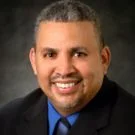It’s the first Sunday of the New Year. I set the clock early intending to prepare for church, but before I knew it, I was running late. I’d been awake for hours, but I hadn’t read scripture or prayed. Neither my heart nor my mind were where they should have been to nurture a relationship; let alone a relationship with God. I made it to church on time but barely.
To be honest, lately I’ve felt overwhelmed. I’ve read my Bible less and my prayers have been less frequent. I’ve been going through the motions, feeling disconnected from my family and from God. I wasn’t focusing on anything, my mind wandering from one thing to the next. That was my problem.
We’ve all had times like these; challenged by life. We’re weary and in need of rest but unable to find it, weighed down by our circumstances. We make decisions, which don’t produce the results we desire, adding to our feeling of helplessness and loneliness. Our focus and attention diverted from what is important. We turn to God, hoping and praying for a way to break the cycle; but are reminded:
“Be careful what you ask for, you just might get it.”
There I was in church, not ready to worship, I was just there. I could easily justify (excuse) my behavior, but the truth is I hadn’t made time for relationships. How many times have you said, “If I only had another day?” H. Jackson Brown Jr., author of Life’s Little Instruction Book, reminds us:
“Don’t say you don’t have enough time. You have exactly the same number of hours per day as Helen Keller, Michelangelo, and Leonardo da Vinci.”
The Pastor introduced a new series titled, “Abide.” He explained that the dictionary defines abide as “to remain; continue; stay.” But, in the Bible, the word takes on a greater intimacy and is often used to show the need to rely on the Lord in every aspect of one’s life. He explained that the Bible provides guidance for how to manage all aspects of our lives: morality, health, finances and, especially, relationships. He asked rhetorically, do we do the things we know we should? Do we truly “abide”?
Abiding is an act of obedience. It is submitting to the knowledge that our relationship with each other, and with God, requires time. He explained that abiding consists of knowledge and belief. “Knowledge is information that feeds the mind. Belief is taking that knowledge and putting it into practice.” For a moment, a silent resonated throughout the church; perhaps it was the sound of conviction.
It’s one thing to know something and it’s something different to believe it, to put it into practice. Knowledge without action is “trivia” – it is great for games show but does little to enrich our lives, or the lives of others. I may have felt disconnected from God, but He was connected and knew where to find me. In Doing Valuable Time, philosopher Chesire Calhoun suggests that we spend time through four mechanisms:
- Primary spending is the time spent on what we consider valuable for us.
- Filler spending is the time spent on things because we have nothing better to do with it.
- Entailed spending is the time spent on things that allow us to spend time on activities important to us.For example, doing our chores early so we can spend more time with others.
- Norm-required spending is the time spent in ways required by various norms. For example, spending time with a person one doesn’t like only because one “should”.
How do you spend your time? If relationships are important (primary spending), are you available to those important to you (friends, family and, especially, God). Is your attention focused, are you present with them? If not, like me at church, you’re either filling in time because you don’t have anything better to do or you’re spending time out of a sense of obligation (norm-required). American businessman, author and syndicated columnist, Harvey Mackay states:
“Time is free, but it’s priceless. You can’t own it, but you can use it. You can’t keep it, but you can spend it. Once you have lost it you can never get it back.”
Time is an important concept, mentioned in the Bible more than 600 times. Look careful, every major event is associated with a time: Genesis (Creation), Exodus (Freedom), and the birth and death of Jesus (fulfillment of prophecy). Ephesians 5:15-17 (NLT) cautions us to use our time judiciously, seeking God’s will:
“So be careful how you live. Don’t live like fools, but like those who are wise. Make the most of every opportunity in these evil days. Don’t act thoughtlessly, but understand what the Lord wants you to do.”
Leadership is the art of relationship building; there is no better indicator of our true “belief”, than how we chose to spend time. Jesus knew this. His ministry lasted three years, but more than two centuries later we seek to have a relationship with him. How we use time might reveal that we spend more time looking outward, or inward, than we spend time looking up. Relationships require time, but Stephen Covey reminds us:
“The key is not spending time; but investing it.”
Challenge: Consider, how has God invested time in you? Are there others you can invest in?










